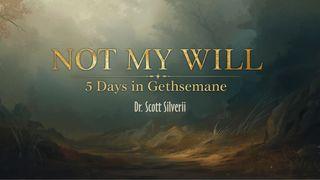Standing in Humility and HopeSample

Day 4 | Vocational Glory
Read: Romans 8:18-25
Creation Renewed and Patient Hope
18 This is how I work it out. The sufferings we go through in the present time are not worth putting in the scale alongside the glory that is going to be unveiled for us. 19 Yes: creation itself is on tiptoe with expectation, eagerly awaiting the moment when God’s children will be revealed. 20 Creation, you see, was subjected to pointless futility, not of its own volition, but because of the one who placed it in this subjection, in the hope 21 that creation itself would be freed from its slavery to decay, to enjoy the freedom that comes when God’s children are glorified.
22 Let me explain. We know that the entire creation is groaning together, and going through labour pains together, up until the present time. 23 Not only so: we too, we who have the first fruits of the spirit’s life within us, are groaning within ourselves, as we eagerly await our adoption, the redemption of our body. 24 We were saved, you see, in hope. But hope isn’t hope if you can see it! Who hopes for what they can see? 25 But if we hope for what we don’t see, we wait for it eagerly – but also patiently.
THE KINGDOM NEW TESTAMENT: A CONTEMPORARY TRANSLATION by N.T. WRIGHT. Copyright (c) 2011 by Nicholas Thomas Wright. Courtesy of HarperCollins Publishers. Used by permission.
Reflect:
In this section, Glory is not about humanity’s ultimate heavenly destination. Rather, it has something to do with, as Paul says, creation’s “freedom that comes when God’s children are glorified.” How is the fact of your “glorification” good news for creation?
Consider:
The two primary meanings of “glory” in this passage are simultaneously the glorious presence of God dwelling within us by the Spirit, and the wise, healing, reconciling rule of God's people over the whole creation. These two—God's presence and human rule—are made for one another. They fit together. That's part of what it means that we are made in God's image.
This second meaning of “glory”—the human vocation and destiny to be set in authority over the world—is not to be played off against the temple idea of the first meaning, the divine glory dwelling within Jesus's people. One of the spectacular features of Romans 8 is that the two meanings converge, as they did and do in Jesus himself.
In technical, theological terms, this is a vital part of Christology and Pneumatology—who Jesus is and who the Spirit is. This leads us to the point of convergence between God's ultimate purpose for creation and his challenging vocation to Spirit-filled people.
When we look back to the primary meaning of the many-sided word “glory,” we find the root sense of dignity or worth or status. The Hebrew kavod carries the notion of weight, as we might speak about the weighty presence of an influential figure or the weighty words of an important speech. The idea of dignity, worth, and status goes with both sides of Paul's meaning. Glory goes with power, and as such, requires careful discernment.
We can't ignore the fact that the post-enlightenment Western world has twisted the vocation of image-bearing stewards of creation into the chance to exploit creation to serve our pride, or greed, or both. Alas, this is scarcely new. Ancient empires, not least the Romans, routinely used a scorched earth policy, literally or metaphorically, when it suited them. It was the smaller-scale equivalent of what we now face.
If we, called to be wise stewards of creation in the 21st century, are to be faithful to that calling, this present passage will be one of our primary resources for a theological response to the many environmental crises we face. The Western church has regularly ignored this theme. Romans has sometimes been read in the opposite way, as a book telling us not to care for earthly things, creation care seeming somehow unspiritual. The philosophical detachment of the Platonists is alluring, even as the poorest among us face the devastating consequences of our indifference.
Romans 8 stands firmly over against any such claims. Glory comes with vocation.
Practice:
The emphasis in this passage is that glory is revealed upon believers, not to believers. Reflect on the idea that, in much the same way we are waiting for the revelation of Jesus into his rule, creation is waiting for you to be revealed in glory for its sake. Identify some ways in which you can lament humanity’s failure to protect and restore creation, and some ways you can use the glory revealed upon you for creation’s sake.
Scripture
About this Plan

Romans 8 is treasured by many Christians, but often misunderstood and misinterpreted. Romans 8 plunges us into the complex world of sonship and suffering, where Paul plumbs the depths of sorrow and scales the heights of joy. This is one of the most challenging and most cheering of biblical chapters. Go beyond simplistic assurance or individualistic salvation and discover the challenging vocation of humanity at the beating heart of faith.
More
We would like to thank N.T. Wright for providing this plan. For more information, please visit: https://www.admirato.org/bundles/free
Related Plans

Transformed by God's Love

NOT MY WILL: 5 Days in Gethsemane

Medicines for Hope

Dear Church Wanderer,

What Happened to Us in Eden? - Psychology of the Fall

Dining With Jesus

The Wonder of Christmas: Timeless Truth in the Incarnation

Bible App for Kids – Discover God’s Big Story

Forbidden Faith
